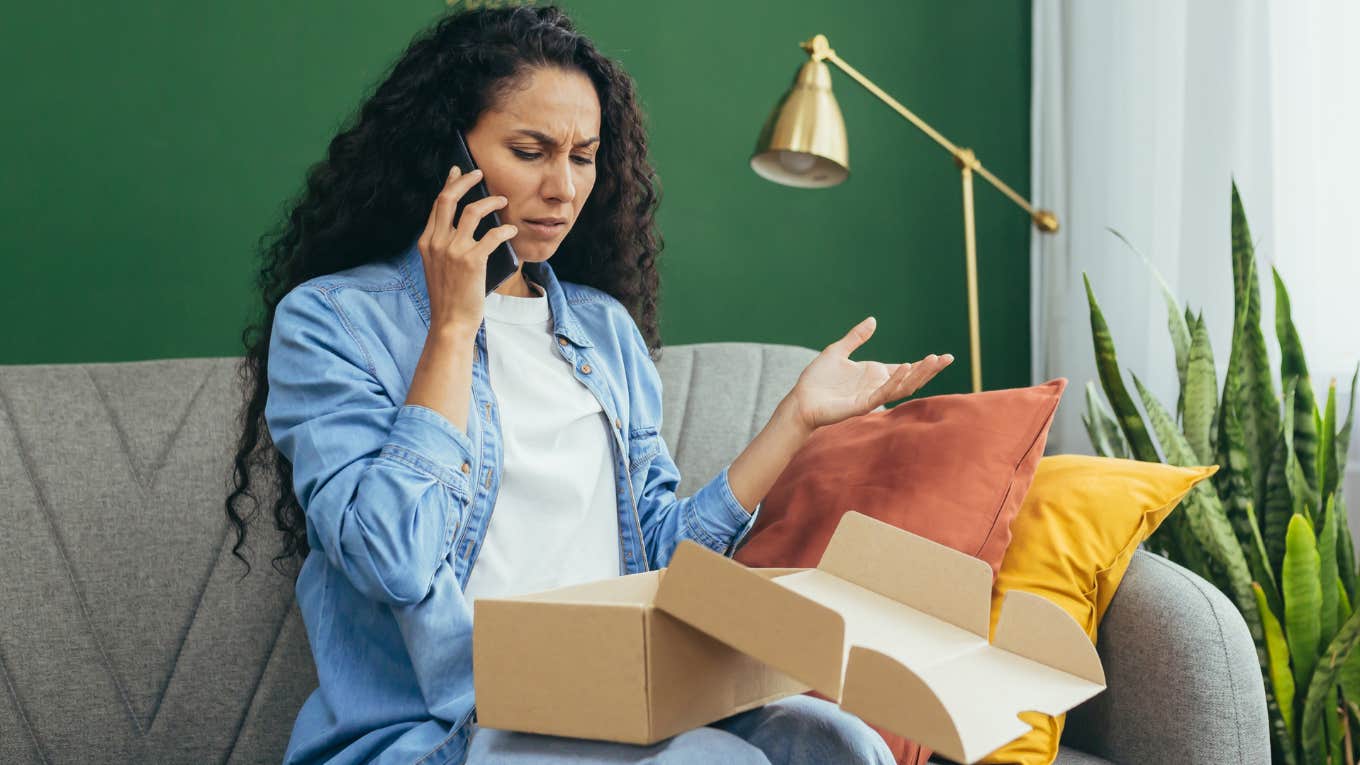Woman Warns Followers About A ‘New Scam’ Affecting People Of All Ages — ‘Don’t Be So Excited If You Get A Package’
While it might be exciting, don’t let your guard down.
 Voronaman | Shutterstock.com
Voronaman | Shutterstock.com In a chronically digital time, many of us are yearning for connection — even if it’s in the form of postage. Opening physical, handwritten letters from our friends, opening packages, or getting an unexpected gift in the mail is the bridge between connection and convenience.
However, a new scam — explained by @mrsmotivated2025 on TikTok — takes advantage of that excitement in people of all ages, with a scary postage scheme that’s taking over traditional fears of spam calls and suspicious links.
The woman warned about a new scam taking advantage of all age groups and demographics.
With tons of valid hysteria about online scams and shady in-person interactions, this new scheme has gone almost completely under the radar — especially for Gen Zers and boomers alike who can’t help but be excited to get something in the mail.
“If you get something in the mail and it’s not what you ordered, like rings, a grill, or even a really pretty necklace,” the creator started, you should be skeptical. Even if it has your name on it, was sent to your address, or is something that you’re excited about — don’t investigate.
Not only are people getting scammed into thinking they’re getting a gift from an anonymous friend or admirer, they’re being roped into uncovering the “secret sender” with an unsuspecting QR code on the package.
The new scam comes in the form of a package with an mysterious QR code for recipients to scan.
“[The package] says something like, ‘If you want to see how you got this…scan this QR barcode and it will explain it.’ If you scan the QR code, it’s actually hackers and they’re going to hack into your phone.”
Despite looking completely legit — with return senders, addresses, and official packaging — these “gifts” are often a ploy to get an unsuspecting recipient to scan a QR code and unlock access to their personal information. According to this creator, people in her circle have “lost everything” after falling victim to this scam, from their bank account information to their work information.
“It looks so legit,” she admits, “so just be careful. Also, tell the older generation and your family, because it’s something that people would genuinely think, ‘Oh wow! This is so cool,’ and then scan the QR code.”
With such a wide variety of scams out in the world, both online and off, the victim demographic has vastly shifted from a decade ago — so, despite this creator’s suggestions, it’s not just older generations who’re susceptible to these toxic schemes.
 GBJSTOCK | Shutterstock.com
GBJSTOCK | Shutterstock.com
Everyone is excited when they get a package — or even get a glimpse of connection without the hassle or stress of an in-person interaction — making this scam much more effective across generations and backgrounds than others.
If you get a package that you didn’t order — do not scan anything.
Despite the unsuspecting nature of these QR codes — especially considering their resurgence in public places like restaurants, parking meters, and flyers on the street — there are ways to protect yourself from harm. Firstly, don’t scan any kind of QR code from an unknown source — whether you’re walking downtown or opening an unexpected package.
The Federal Trade Commission’s “Consumer Advice” forum also suggests inspecting any URLs associated with QR codes, if possible, before scanning. If something doesn’t look right, don’t scan it. If they’re coming through online or through a text message, especially with an aura of urgency, make sure to steer clear.
Hackers and scammers will often utilize QR codes sent through text messages, pretending to be your bank or a package sender asking you to scan the code to track your package, confirm a purchase, or pretend like there’s a problem with your account.
Always set up two-factor authentication on your accounts, check with your official banks or accounts before responding, and be on the lookout for suspicious activity online — and at your doorstep.
If you’ve scanned a suspicious QR code or have concerns about your information privacy, consider setting up additional protection online, contacting your bank, and changing your passwords immediately.
While this creator suggests it’s “safe” to keep the package, as long as you’re not scanning the code, comments under her post urge people to dispose of anything from an unknown sender. There’s always a chance someone modified the package, making it unsafe and potentially harmful to anyone in your home.
Of course, scams and online schemes are never going to go away, but that doesn't mean you have to live in a state of constant fear and confusion. Instead, always be skeptical and take precautions that protect you, rather than evoke fear.
Zayda Slabbekoorn is a News & Entertainment Writer at YourTango who focuses on health & wellness, social policy, and human interest stories.

